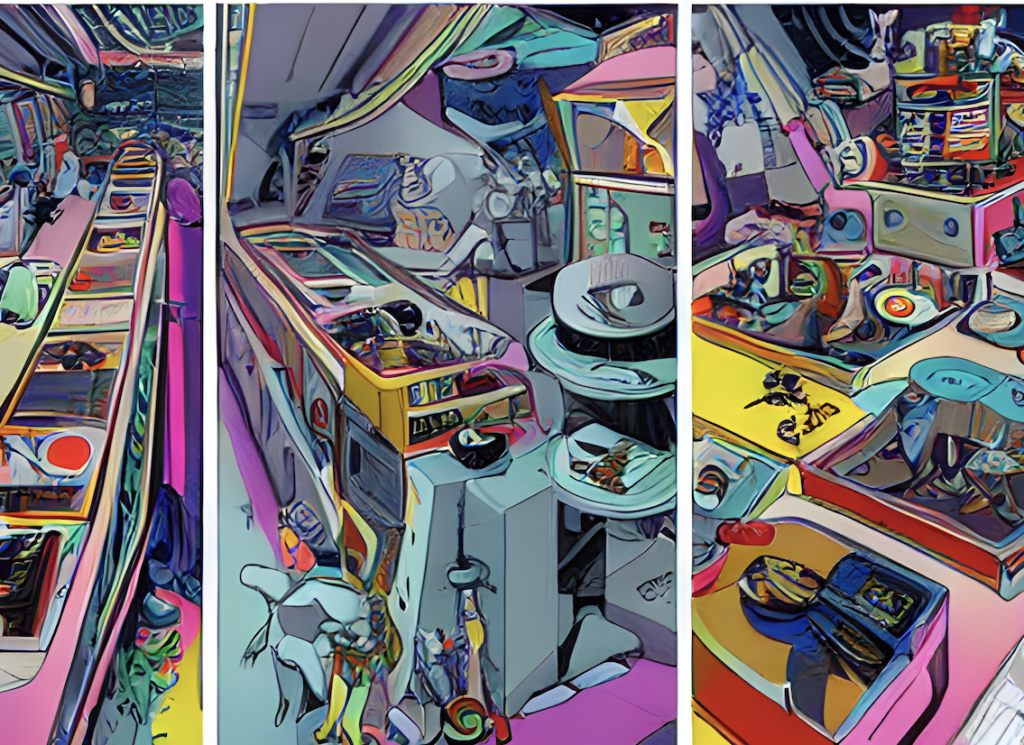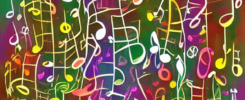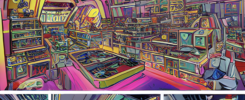Intro and my own story
My passport says I was born in USSR, although I haven’t been living in the country I’m from for more than half of my life now. Since the age of 16, I spent years in the US and Bulgaria and settled in Hungary. I started writing music with FL Studio 2 (lol, I’m so old) when I was in school, and my most active music production and engineering years were during college. I make hip-hop and electronic music. During my senior year of college, SoundCloud was a hit, and Spotify was not on the radar as people just started getting smartphones at scale. At that point, I even started my own platform, DubstepRadio.ru, where producers could get voted to the main playlist. And then I had a long break from music.
After about 10 years of corporate career path, family life, and children – I missed a lot of developments in the industry, and music NFTs brought me back to my biggest passion, as blockchain brings the novelties for the independent producers that were hardly imaginable before. I started investigating the NFT and Web3 music platforms one by one and recorded my journeys in a series of blog posts on musicnftstartup.com. I made 3 new tracks in 2022, and for the first time in a decade, I could say that I’m active in music-making again.
Why start with Web3?
It looks like Web2 (YouTube, Spotify, SoundCloud, and a bunch of library services like Motion Array and Artlist) progressed in helping musicians make decent income. I was absolutely amazed when I found out how easy (and cheap!) it is now to release your music to a variety of platforms using Distrokid. So, why would we need Web3 anyway?
Because it offers something that the blockchain has been offering since 2012 – significantly cutting the middleman and offering creators independence and relative freedom in making decisions. For me, another aspect is particularly important – it is truly global, you can almost say it’s borderless. My passport has not been too helpful in the past in opening the doors to markets that shouldn’t have those doors, to begin with, i.e. creative disciplines and industries.
Was I worried about safety? Certainly. But is it different from my safety on Web 2.0 – not much. Maybe it’s because I don’t have much to lose, but maybe there are grounds for it. If you also have concerns, please watch the video addressing a bunch of questions I’ve been asked, and had to look for answers for myself:
Prerequisites for joining Web3 music space
Since you are still here, we’re going to make a couple of assumptions – you create music, you are interested in joining Web3 to get your music heard, connect with fans, and make some money. Now let’s talk about a few things you need to have when you onboard the Web3 music scene:
- Your own music – even if it’s old, that’s how I started, but even better if you’ve got some fresh releases
- Branding materials – artist bio, high quality photos of yourself or your character, album art, etc.
- Social media accounts (not required, but mostly required) – for web3 the primary setup is Twitter + Discord (mobile or desktop app to chat and participate in community activities). If you have following elsewhere – good, whatever is best for you, but if you are not an SMM guru, you should have at least one channel, whether it’s Twitter, Instagram, TikTok + Discord.
- Cryptowallet (also, often not a must, but come on, it’s time to get one)
Web3 Music Ecosystem Broadly
There’s been a couple of noble efforts to systematize the Web3 music ecosystem already – it’s big and it’s exciting, just take a look:
Working on an updated Music NFT Landscape.
50+ new projects on my radar.
Who else needs to be on it? pic.twitter.com/JuXYcNYEn2
— Coopahtroopa
_
(@Cooopahtroopa) April 24, 2022
WEB3 MUSIC MAP (updated)
This is the biggest map I’ve ever made.
It’s 7 slides long (and only took two all-nighters
)
I would love the community’s help to finalise it
— musicben.eth
(@_Kaspar__) November 3, 2022
This is great, and there are channels, like NFT Music Info that will tell you pretty much about every single one of them. My advise would be to narrow it down by two parameters:
- Your current level, which is probably a function of how professional you are as a musician, whether you play in a band, made any big releases, how much money you’ve made with your music, the amount of social following, etc.
- The platform or community level, goals, and whether they match your own.
Having these two in mind, let’s dive into some details.

In the next part, we will cover what the 10 most popular music Web3 platforms are about, and which ones are worth joining depending on your level.



